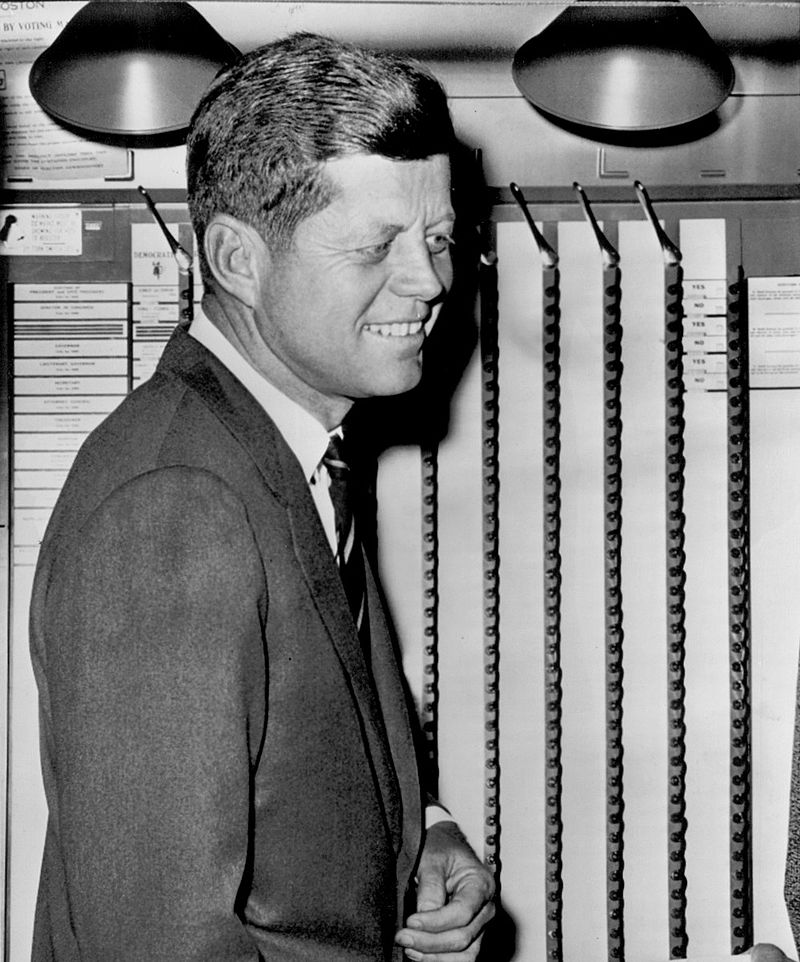 The Washington Post publisher Katharine Graham had a complicated relationship with her mother, Agnes Meyer. When confronted with a line at the movies, Graham wrote, her mother would go up to the box office and announce: “I am Mrs. Eugene Meyer of The Washington Post” so she could jump the queue. “As the years went on, my mother seemed to have a more and more difficult time emotionally. She became increasingly engrossed in her friendships with the series of men in her life… ” One of Meyer’s most intense relationships was with Thomas Mann, who later wrote to his biographer Donald Prater that he felt, “an almost uncontrollable desire to give this woman tyrannizing me a piece of my mind.” In 1943, he did:
The Washington Post publisher Katharine Graham had a complicated relationship with her mother, Agnes Meyer. When confronted with a line at the movies, Graham wrote, her mother would go up to the box office and announce: “I am Mrs. Eugene Meyer of The Washington Post” so she could jump the queue. “As the years went on, my mother seemed to have a more and more difficult time emotionally. She became increasingly engrossed in her friendships with the series of men in her life… ” One of Meyer’s most intense relationships was with Thomas Mann, who later wrote to his biographer Donald Prater that he felt, “an almost uncontrollable desire to give this woman tyrannizing me a piece of my mind.” In 1943, he did:
 “I, who am agitated by everything, who need peace and quiet as I do my daily bread, who can neither accomplish anything nor even merely live in the midst of bickering and quarrels, but instantly go to pieces–I must suffer for it, and on account of something I have had nothing to do with. I must see the shattering of a friendship which was dear to me.
“I, who am agitated by everything, who need peace and quiet as I do my daily bread, who can neither accomplish anything nor even merely live in the midst of bickering and quarrels, but instantly go to pieces–I must suffer for it, and on account of something I have had nothing to do with. I must see the shattering of a friendship which was dear to me.
It was dear to me. I understood how much I, the foreigner, possessed in having it, and I served it faithfully and with care. Serving is the very word. For years I have devoted to it more though, nervous energy, work at the desk, than to any other relationship in the world. I have let you participate as well as I know how in my inner and outer life. On your visits I have read aloud to you for hours from new work no one else has seen. I have shown the most sincere admiration for you patriotic and social activities. But nothing was right, nothing enough. In my letters there was ‘no trace’–I no longer know of what, probably of humanity. You always wanted me different from the way I am. You did not have the humor, or the respect, or the discretion, to take as I am. You wanted to educate, dominate, improve, redeem me. In vain I warned you, with all kindness and delicacy, that at the age of nearly seventy my life was too thoroughly formed and fixed. I cannot but feel that your outbreak of wrath over such a letter as my next to last is merely the eruption of profounder disappointment and embitterment taking an almost insignificant pretext to express itself.
I had wished so much– I cannot say how strongly–to give this relationship of ours a quality of balance and serenity, of calm, invulnerable cordiality. But now it has reached the crisis which probably threatened it from the first moment. Let us grant it and ourselves the tranquility which alone can restore our psychological equilibrium….
Full of good wishes for you and yours, I bid you a heartfelt farewell.”
Letters of Thomas Mann, 1889–1955 , Selected and Translated by Richard and Clara Winston, University of California Press, 1970.

 Ronald Reagan loved a joke. It’s been nine years since Barack Obama (in retrospect, perhaps unwisely) roasted Donald Trump at the White House Correspondents Dinner. Trump would in turn nickname his rivals Crooked Hillary and Sleepy Joe. On October 19, the presidential candidates Richard Nixon and John F. Kennedy attended a dinner in New York. The humour was very tame– a ways from jokes about police brutality and the White House being a dump. Back in 1960 Kennedy’s joke involved using the profane words “damn,” and “hell,” (words Ronald Reagan noted in his diary with grawlixes).
Ronald Reagan loved a joke. It’s been nine years since Barack Obama (in retrospect, perhaps unwisely) roasted Donald Trump at the White House Correspondents Dinner. Trump would in turn nickname his rivals Crooked Hillary and Sleepy Joe. On October 19, the presidential candidates Richard Nixon and John F. Kennedy attended a dinner in New York. The humour was very tame– a ways from jokes about police brutality and the White House being a dump. Back in 1960 Kennedy’s joke involved using the profane words “damn,” and “hell,” (words Ronald Reagan noted in his diary with grawlixes).
